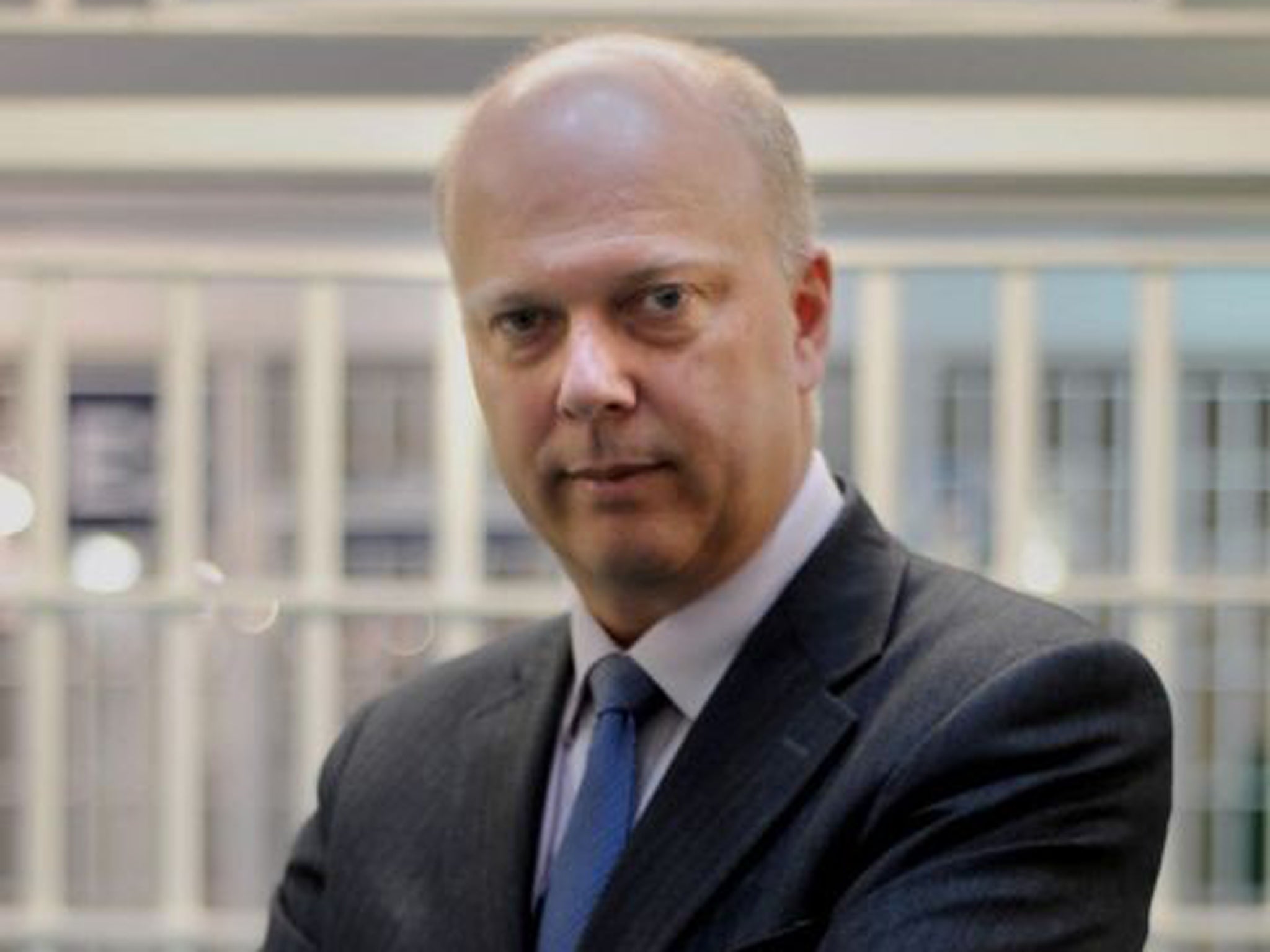No legal aid for prisoners, says Chris Grayling
Foreigners will also be prevented from accessing financial support in civil cases until they have been in the country for one year

Prisoners and those with high incomes will no longer be able to claim legal aid, Justice Secretary Chris Grayling said today.
He told MPs that the restrictions represented a "good deal" for taxpayers as the coalition sought to bring down to save £220 million a year from the legal aid bill as part of wider reductions in public spending.
Foreigners who had just arrived in the country would also be barred from accessing legal aid in civil cases until they had been here a year.
In a statement in the House of Commons, Mr Grayling said, "We will introduce a new residency test that will prevent most people who have only just arrived in the UK from accessing civil legal until a year after they had arrived.
"We will limit criminal legal aid for prisoners so that it is not available unnecessarily. There will be no more legal aid available because you don't like your prison.
Legal aid will not be granted in 11,000 cases brought to court by prisoners each year.
Defendants with a annual disposable income of £37,500 a year and at least £3,000 to spare each month after paying essential bills would no longer receive automatic legal aid.
"We will set out new rules that will mean the wealthiest Crown Court defendants - those in households with more than £3,000 in disposable income left after tax, housing costs and other essential outgoings - will have to fund their own legal costs," he said.
"When I set out our initial plans in April, I was clear that they were for consultation. I have kept that promise. What we have agreed, after our discussions with the Law Society on criminal legal aid contracting, is a sensible proposal which is tough but realistic."
The statement came shortly after the Government revealed that it will scrap plans to award legal aid contracts to the lowest bidders following criticisms it would “irrevocably damage” the criminal justice system.
Mr Grayling ditched the proposals after drawing up the Government's latest legal aid reforms with the support of the Law Society for England and Wales.
Shadow justice secretary Sadiq Khan accused him of a "climb-down" over the plans.
Other cost-saving measures, such as the introduction of a cap on contracts for duty solicitor work at police stations, will go ahead as planned.
Barrister-turned-MP Karl Turner had earlier raised fears that price-competitive tendering, designed to reduce the £2 billion spent on legal aid, would allow multinational firms to provide justice at the lowest cost.
The Labour MP had told MPs he believed it would lead to private companies such as G4S and Serco dominating the legal aid market at the expense of smaller firms who possess greater expertise.
Instead, law firms seeking a legal aid contract will be subject to certain criteria but price will not be a factor.
Mr Grayling said he would also lift a cap on the number of contracts to be awarded, which law firms feared could have closed 1,200 businesses.
There will also be a 17.5 percent cut in legal fees which is to be introduced in stages. While fee reductions for solicitors were "inevitable", these would be phased in from early 2014 but there would still be a legal entitlement to legal aid for anyone arrested, he said.
He added that, with cuts of a third to his department, he was trying to implement the same reductions to the legal aid budget.
He said the system was currently one of the most expensive in the world, which was "simply not sustainable" for the future.
Mr Grayling earlier said that he intends to set up a working party made up of the Law Society, Bar and judiciary to investigate ways to cut the cost of brief hearings at Magistrates' and Crown Courts.
Ideas include carrying out pre-trial hearings via video-link or email to avoid defendants and their lawyers travelling long distances to appear in front of a judge for a matter of minutes.
Join our commenting forum
Join thought-provoking conversations, follow other Independent readers and see their replies
Comments
Bookmark popover
Removed from bookmarks